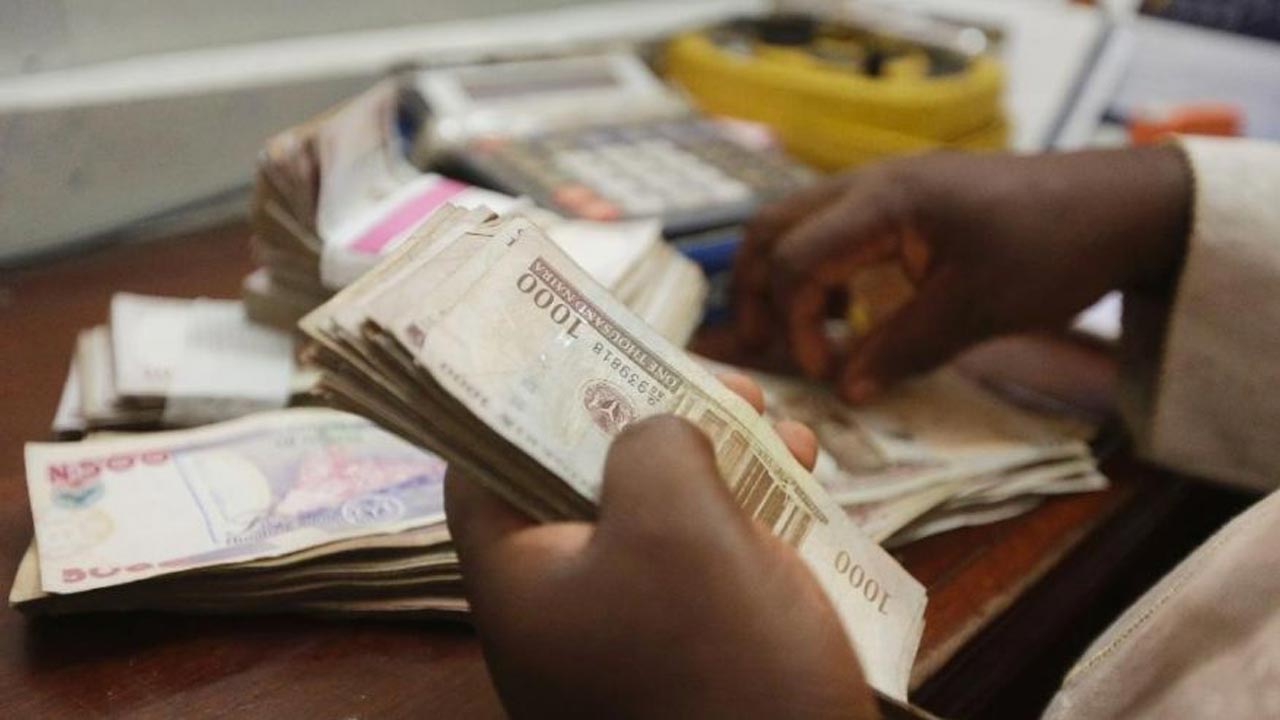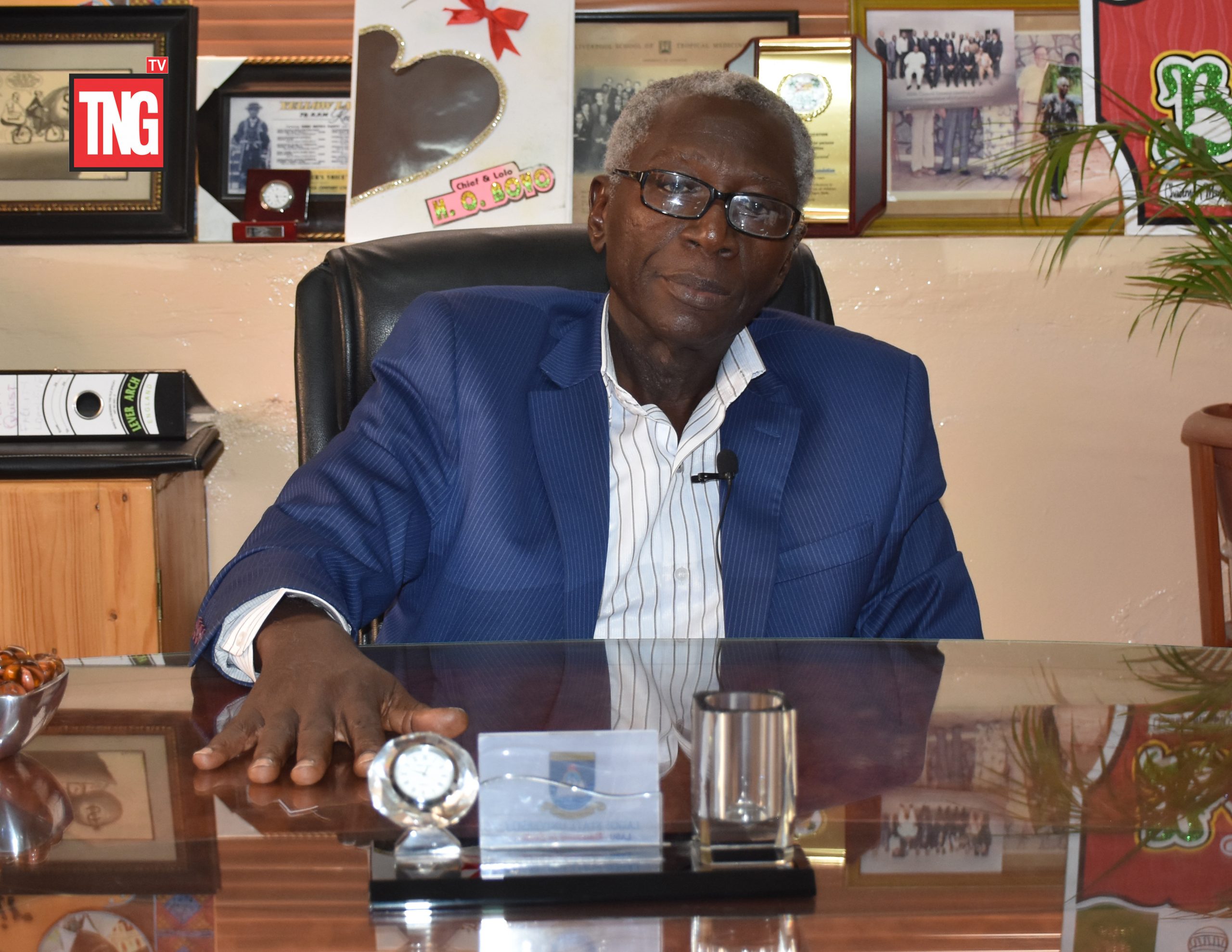The Nigerian naira has magically gained grounds against the United States dollars a night to the Nigerian presidential elections.
Recall that the country heads for its presidential poll Saturday (tomorrow) after it was postponed last week by the Independent Electoral Commission (INEC) over logistic related problems .
According to checks by TNG on google on Friday night, the naira gained grounds from N362 to a dollar to N184 to a dollar.

Further checks by TNG an hour later on same google placed the naira at N54 to a dollar.

However, it was a different scenario on other currency sites as the naira ranged from N358 – N362 to $1.


Reacting to the conflicting value of the dollar, a Bureau De Operator based in Abuja told the TNG that they were unaware of such developments and that dollar still sold for N360 till 8 pm on Friday night.
‘I don’t know where the confusion is coming from. People have also been calling us to confirm if the exchange rate is true. We don’t operate on computer or internet. As at this evening, the value of one US dollar to a naira at black market was N360. If you know where they sell less, please take me there. Its election eve, anything is possible’, Musa told TNG correspondent on phone.
However, the Nigerian currency on Friday gained N1 to close at N358 to the dollar at the parallel market in Lagos.
TNG reports that the naira traded stronger on the eve of elections than Thursday when it closed at N359 to a dollar.
The Pound Sterling was sold at N470 and the Euro at N408.
At the Bureau De Change (BDC) segment, the naira traded at N360 to the dollar, while the Pound Sterling and the Euro closed at N470 and N408.
Trading at the investors window saw the naira closing at N361.49 to the dollar as market turnover stood at 292.34 million dollars.
Meanwhile, the President of the Association of Bureaux De Change Operators of Nigeria (ABCON), Aminu Gwadabe, last week said the naira has in over 18 months remained stable at both the official and parallel markets despite several odds facing it ahead of the 2019 general elections.
Speaking recently to financial journalists in Lagos, the ABCON boss commended the Central Bank of Nigeria (CBN) financial sector reforms and the contributions of the Bureau de Change (BDC) operators to the current exchange rate stability, as against the common practice of currency devaluations and depreciations across the world at election times.
Gwadabe said that the absence of foreign exchange spikes and volatility before and during the 2019 election year is a major achievement by CBN and the Federal Government. He said: “The dexterity of the government policies in ensuring that naira remained stable in an election year is commendable. Election years, as witnessed during the 2015 general elections, are marred by exchange rate volatility and spikes in the market.”
He disclosed that financial pundits had in early 2016, speculated that the naira would depreciate to as low as N1000/$. The election period of 2015, he added, witnessed over $100 billion capital flight outside the country. The activities of currency hoarders, speculators and rent seekers reached its peak in 2015.
He disclosed that ironically, the trend in the foreign exchange market during this year’s election showed hope for the economy, sustained exchange rate stability, adequate dollar liquidity, increasing foreign capital inflows and most importantly, a unified and convergent exchange rate of BDCs and the parallel market. These feats, he said, are commendable by all standards.
On deepening capacity/skills of industry operators, Gwadabe appealed to CBN to issue Letter of Consent to ABCON proposed training institute. This, he added, is going to boost the current ABCON management’s commitment to capacity building for its members to stimulate competence in the sector and make room for better foreign exchange management.
Continuing, Gwadabe also listed factors that led to the current successes in the foreign exchange market. He said: “First, I want to congratulate the leadership of CBN for a well coordinated, proactive exchange rate management strategies, which include creation of several foreign exchange windows to deepen liquidity and price discovery, restriction of foreign exchange on 42 items that can be produced locally, self-sufficiency in rice production and continuous partnerships between the apex bank and BDCs, all led to the current exchange rate stability enjoyed in the country.”


